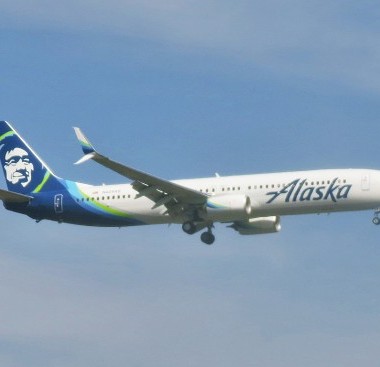JetBlue swayed by low Spirit fares before seeking to buy rival
JetBlue Airways Corp. was competing aggressively with Spirit Airlines Inc. and other discount carriers on ticket prices before making a $3.8 billion takeover bid last year for its smaller rival, a JetBlue executive testified during the government’s case seeking to block the deal.
Dave Clark, JetBlue’s head of revenue and planning, told a federal judge in Boston on Thursday that Spirit was growing rapidly in the years before the pandemic and expanding in the same markets, prompting JetBlue to consider other ways of responding.
The government showed internal emails by Clark and presentations he gave to other executives showing the airline had a difficult time in 2020 winning business from price-sensitive customers. That forced JetBlue to match Spirit’s pricing.
“At that time, we needed to,” Clark testified.
JetBlue speculated it would be overtaken in market share by Spirit by 2025, according to an internal presentation Clark gave that was displayed in court by government lawyers.
But during his testimony Thursday, Clark said JetBlue doesn’t consider Spirit one of its primary competitors. Instead, he said, JetBlue spends “99% of our time thinking about the Big Four” – American Airlines Group Inc., Delta Air Lines Inc., United Airlines Holdings Inc. and Southwest Airlines Co. Those companies account for 80% of US ticket revenue.
Spirit remains “a competitor of ours, but they are roughly a 5% player, and that’s frankly the amount of mind share we spend on them,” Clark testified.
The US Justice Department sued to block the merger, arguing it would eliminate JetBlue’s fastest-growing competitor and limit choices for passengers, especially in the market for ultra-low-cost air travel. It’s the latest effort by antitrust regulators to crack down on airline consolidation after decades of approving deals with little restriction.
JetBlue and Spirit argue that merging would allow them to become the fifth-largest domestic airline and to compete more directly with the dominant US carriers.
In many of JetBlue’s focus cities — including Boston and New York area airports — Spirit commands a smaller share of revenue and passengers than American, Delta, United and Southwest.
Rival’s Growth
Still, documents produced during the trial showed JetBlue sought to compete with discounted prices offered by Spirit and other low-cost carriers. One option JetBlue considered in 2020 was to eliminate its carry-on baggage policy for the lowest tier fares — known as “Basic Blue.”
Slides from a presentation Clark made on the matter pointed to Spirit’s growth in JetBlue markets as a motivating factor to consider a change.
“In the three years ending 2019, Spirit grew 64% overall and 87% in JetBlue markets,” the slide reads.
Clark said those figures show that Spirit had the strongest competitive pricing against other airlines at that time. JetBlue conducted a pricing test of so-called ultra-low cost carriers that highlighted the benefits of attempting to match their prices.
The trial is being heard by US District Judge William Young without a jury, which means he’ll be the one to decide whether the sale should be permitted to proceed.
The case is US v. JetBlue, 23-cv-10511, US District Court, District of Massachusetts (Boston).
Similar Stories

Lufthansa Cargo and Maersk launch cooperation to support decarbonization of airfreight
View ArticlePort Authority of New York and New Jersey airports see spookily spectacular surge in October
Port of New York and New Jersey surpasses 700,000 TEUs for eighth consecutive month
View Article
airBaltic Cargo partners with cargo.one to accelerate and enhance its digital sales
View Article
Chapman Freeborn agrees partnership with Portuguese multimodal logistics specialist
View Article
Cathay is ready for the commissioning of the three-runway system at Hong Kong International Airport
View ArticleUnited Airlines Holdings Inc. upgraded To ‘BB’; outlook stable
• United Airlines Holdings Inc. is on track to generate credit measures in line with our previous upside rating threshold this year, and we expect improvement in 2025. • The…
View ArticleGet the most up-to-date trending news!
SubscribeIndustry updates and weekly newsletter direct to your inbox!





